Feeding my 85 gallon tank water heater with a tankless water heater
suraj989
2 years ago
Featured Answer
Sort by:Oldest
Comments (16)
suraj989
2 years agoRelated Discussions
tankless vs high recovery tank water heater for 4200 sq rancher
Comments (10)Be careful with the first hour ratings. On a 100 gal tank you will get about 70-75 gallons of hot on that first load. You then get the balance of the first hr rating over that first hr. For the kind of lay-out you suggest I think you should split the house up into two systems and try to centralize each tank to its load. That minimized pipe losses with the recirc, and yours will be substantial. The very best recirc system is the Metlund Design system. It complies best with all the new Title 24 regs. You will need 3/4" insulation on your hot piping. Again T24. Be very careful with the pex sizing. I re-piped with Uponor and the brass fitting here in the Foothills of N CA. There is a bushing affect on the fittings. The ID of 1/2" is 3/8, 3/4=9/16 and 1" is 13/16. It does make a difference. I have a couple faucets I was surprised how poor the pressure is on my current well 40-60 psi set-up. I had intended to go to a constant pressure well pump but now will definitely do so. Everything is good about the 50 psi range. Not so at 40# I am a fan of tankless. I represented a major manuf of tankless for 20 yrs. As far as your suggested products I will only suggest that you avoid Bosch. They, imho, do not have the right technology. Your first step regardless of what you do for equipment is a thorough water test. Manuf of tankless have to list annual cleanings for maintenance, but I had one unit for 12 years and never touched it. It was a pre-production model and I had to replace it prior to selling the house. I cut it in half and it was as clean as a whistle. Many of your plumbing questions and answers begin with the compete water test. Tankless (2) could handle your loads until you bring the tubs into play. They represent a massive load, even for your Vertex's. To handle your tub flows you should have two units on each side of the house. The thing about the tankless is they will each make your 7 or so gpm 24 hrs per day, but 135/7=about a 18-20 min fill. Will you wait that long for your bath. I have a bath fill controller on my tub. I set it at 104 and 35 gal (the vol of my tub) and it will deliver 35 gal of 104* water and shut off the hot and beep to tell me my bath is ready. Pretty cool actually. Your shower should be okay with one tankless, but your shower head(s) must fall within the flow capacity of the water heater. I can go on and on with this topic. Get your water tested and report back. That should be step one regardless of what your are doing....See MoreCombine Tankless Water Heater with Tank Water Heater?
Comments (9)The disadvantage of tankless is that you may not have enough hot water to supply multiple simultaneous uses (running 3 showers at a time, for example). So what I'm thinking is a tankless and a tank heater feeding into a mixing valve such as a Watts LFMMV. Set the tankless to deliver 110F and the tank to deliver 120F and set the mixing valve to supply 110F. Then under normal conditions the the mixing valve calls for "cold water" of 110F from the tankless but if the tankless can't keep up and falls below 110F then the mixing valve mixes in hot water from the tank to maintain the 110F. Would this work?...See Moretankless water heater - 50 gl water heater???
Comments (19)There is a LOT of disinformation on these forums about on-demand tankless units, ESPECIALLY the electric units. First, energy cost savings is NOT a reason in itself to make the switch. No reason alone is sufficient. It is the total package, in light of your particular lifestyle, that will dictate the pro-con outcome of the decision making process. First, tankless units save space -- a lot of it, especially electric units that do not need to be vented. In Texas we have no basements, so that can be an important issue. Second, an electric unit is unlikely to blow up, unlike anything using natural gas. Third, there is an endless supply of hot water, which in a successive-morning-shower household like mine, is a really important issue. And finally, yes there is some documented comp fuel savings (electric tankless over electric tanks, or gas over gas), that is really offset by the added initial cost of the unit plus upgraded electrical service or gas supply line sizing. Moreover, there ARE full-house electric units out there that provide plenty of water, unless you plan on taking two showers simultaneously while also doing your laundry and running the dishwasher! And if that's your bag, you can run 2 or more electicals together. Or get a really big gas unit. Bottom line, nearly every nay-sayer of tankless units ignore the pros and focus on a single con - cost, cost, cost. Well, we all don't drive a Ford Focus for a reason. Some of us enjoy our Buicks, Porsches or Camrys even though another car would get us from point A to point B cheaper while using less fuel etc etc etc. Full disclosure: I have a Steibel Eltron Tempra 36 whole-house electric unit. Love it. My electric bill went up nary at all....See Morereplacing NG tank hot water heater with tankless
Comments (9)We installed a tankless hot water heater a couple of years ago when our old tank died. It cost more ($2200 maybe with the new gas vent, larger gas line, etc.), but it also has a few advantages. Smaller footprint literally and figuratively, constant hot water as long you want to stand in the shower, and lower utility bill (though not by THAT much). We are empty nesters, so it doesn't get a big workout very often...holidays and such. One disadvantage is the lack of experienced plumbers, even those listed on the company's website! The dealer that installed it went under with the building bust, and I had to pull up the product manual on my laptop and talk through it with the plumber who did my annual filter cleaning. (We have very hard water and I knew it needed cleaning, just didn't want to attempt to disassemble it myself....but I will now that WE learned how to do it.) In this economy, I'll bet more people are opting for saving $$ than going green on this appliance, since the payback time is considerable....See MoreVerbo
2 years agosuraj989
2 years agoJake The Wonderdog
2 years agolast modified: 2 years agoStax
2 years agosuraj989
2 years agomike_home
2 years ago
Related Stories

GREAT HOME PROJECTSHow to Switch to a Tankless Water Heater
New project for a new year: Swap your conventional heater for an energy-saving model — and don’t be fooled by misinformation
Full Story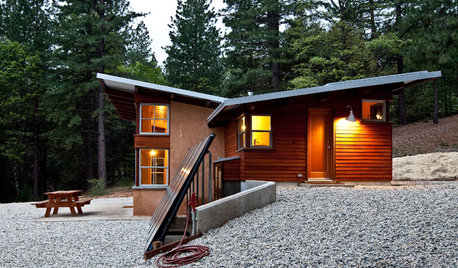
GREAT HOME PROJECTSHow to Add a Solar Water Heater
Lower energy bills without a major renovation by putting the sun to work heating your home’s water
Full Story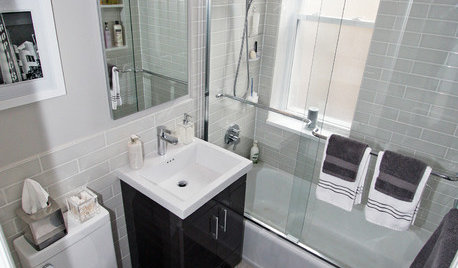
BATHROOM DESIGNWater Damage Spawns a Space-Saving Bathroom Remodel
A game of inches saved this small New York City bathroom from becoming too cramped and limited
Full Story
SAVING WATER11 Ways to Save Water at Home
Whether you live in a drought-stricken area or just want to help preserve a precious resource, here are things you can do to use less water
Full Story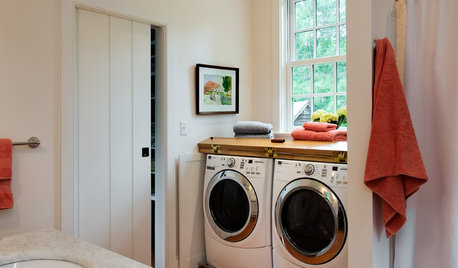
GREEN BUILDINGWater Sense for Big Savings
Keep dollars in your pocket and preserve a precious resource with these easy DIY strategies
Full Story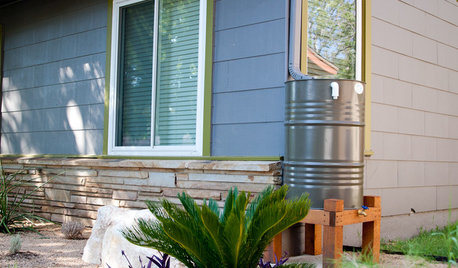
GREEN DECORATINGEasy Green: Big and Small Ways to Be More Water-Wise at Home
These 20 tips can help us all make the best use of a precious resource. How do you save water in summer?
Full Story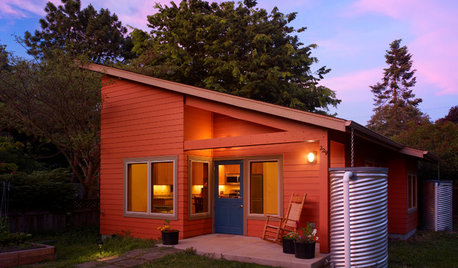
GREEN BUILDINGHow to Harvest Rainwater for Your Garden
Conserve a vital resource and save money by collecting stormwater for irrigation in a barrel or tank
Full Story
EARTH DAYGrow a Beautiful Garden With Ecofriendly Greywater
Reducing home water waste means lower bills and a healthier planet. Here's how to set up a greywater home irrigation system that can help
Full Story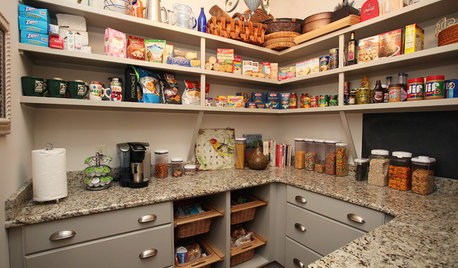
LIFEHow to Prepare for and Live With a Power Outage
When electricity loss puts food, water and heat in jeopardy, don't be in the dark about how to stay as safe and comfortable as possible
Full Story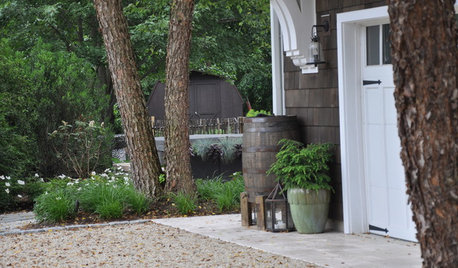
SAVING WATER6 Reasons Why You Should Save Your Rainwater Now
Collect and store during the rainy season so you’ll have water ready for irrigation when you need it
Full Story



Jake The Wonderdog